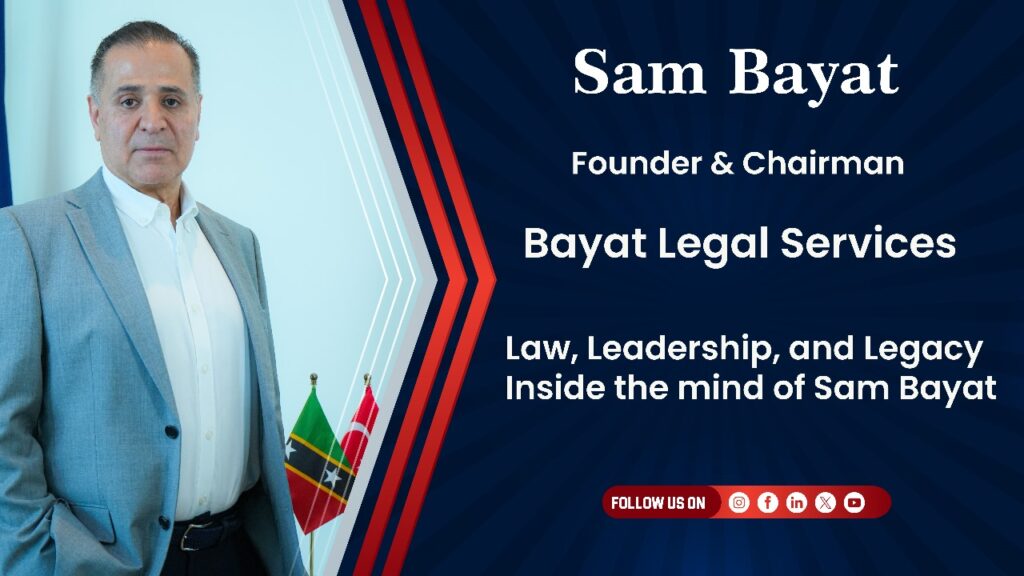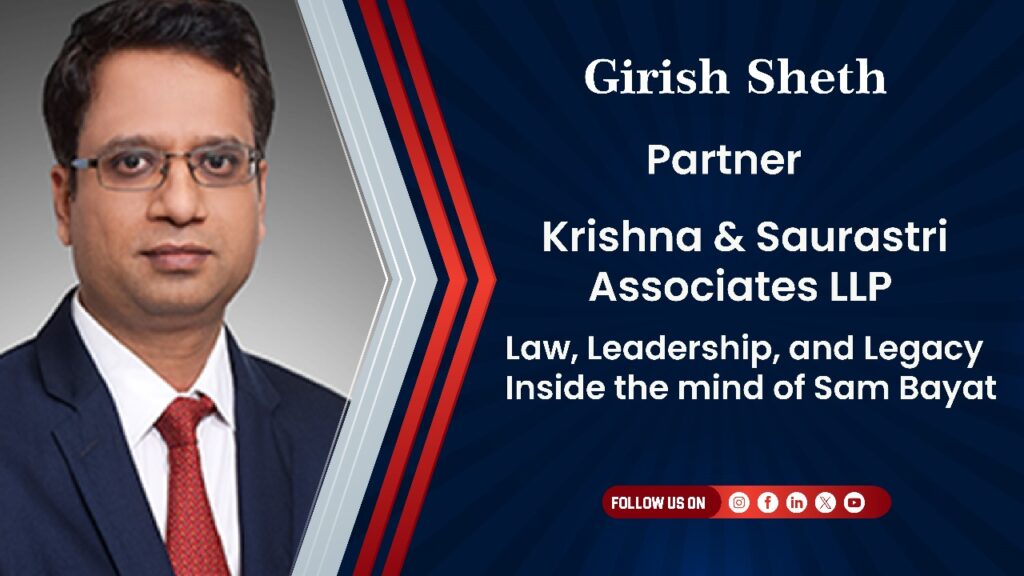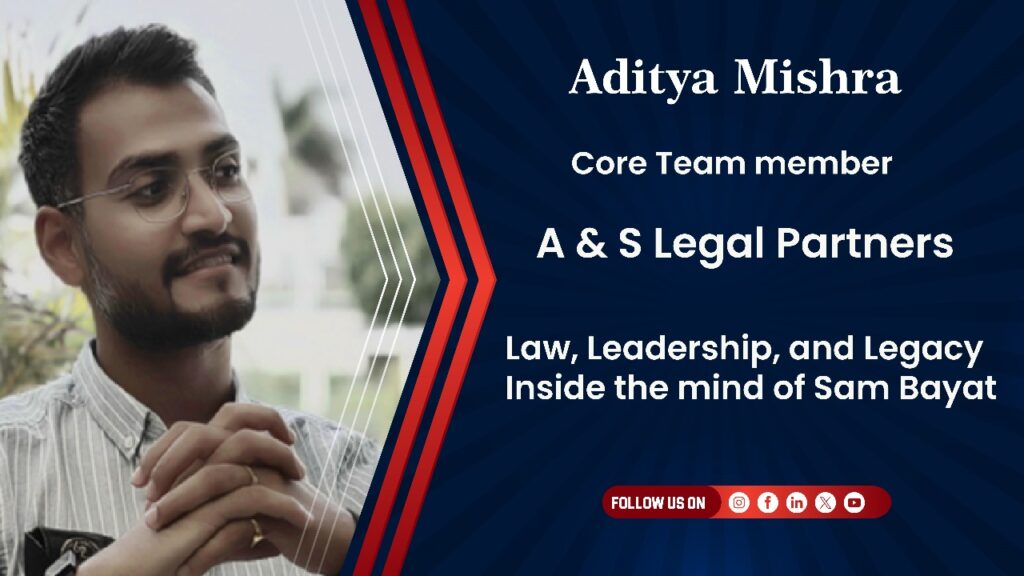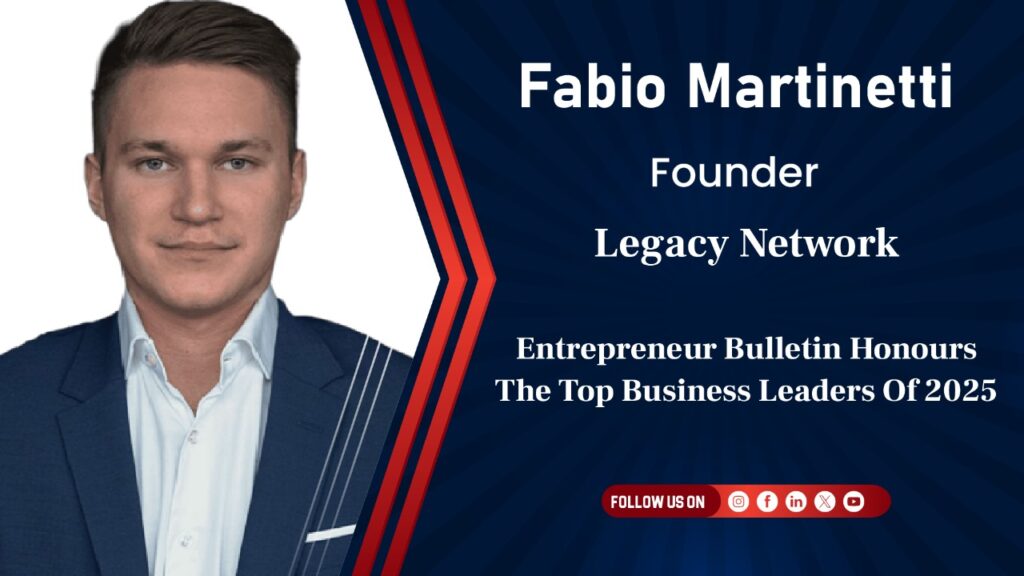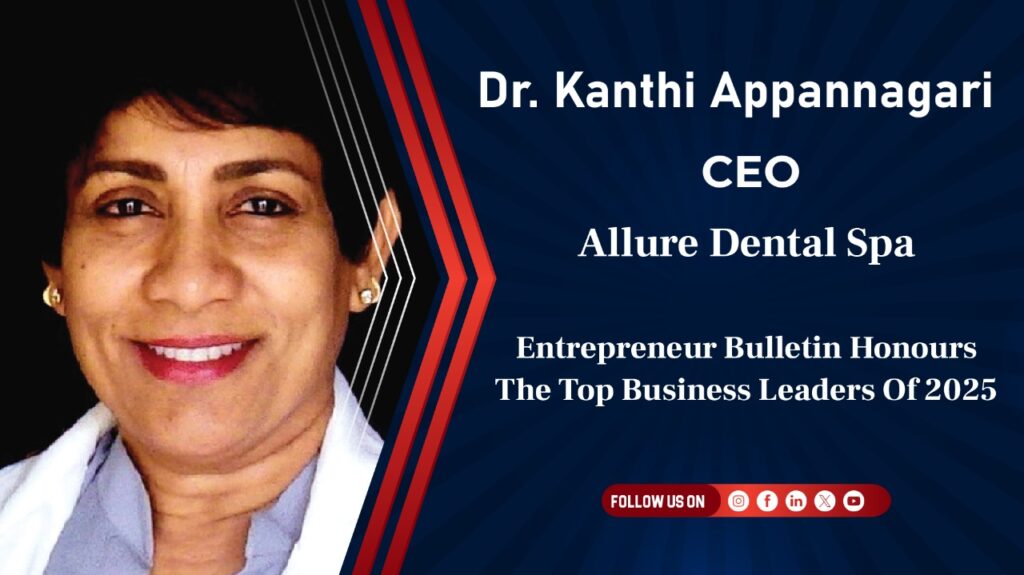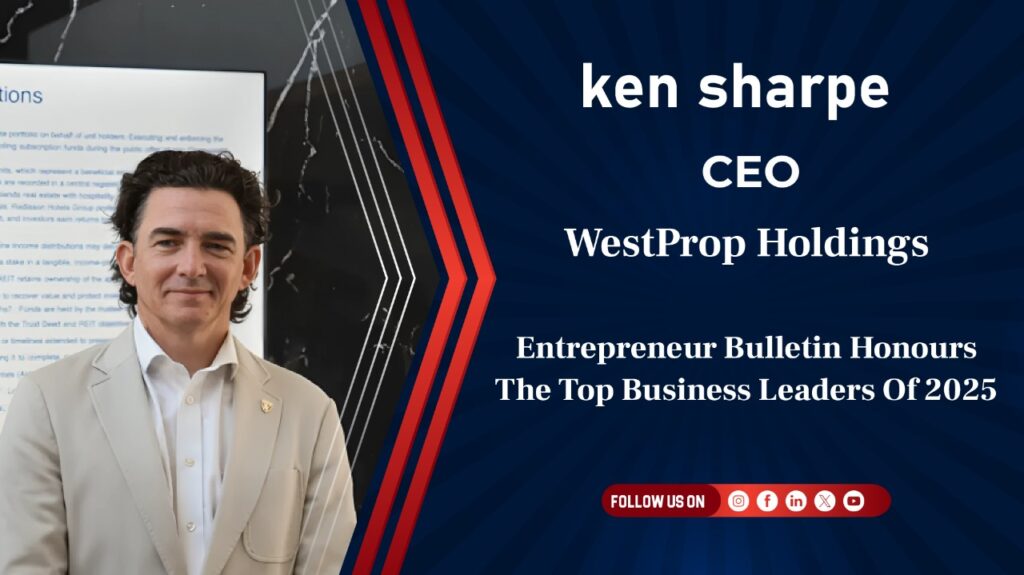From Finish Lines to Frontlines: How a Triathlon World Champion Is Redefining Leadership with the Power of Energy
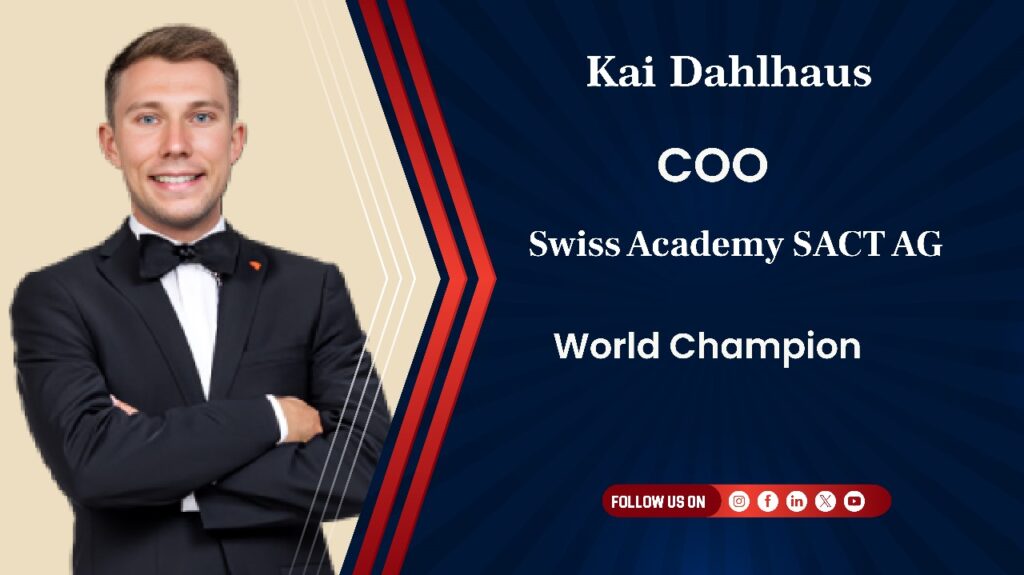
From triathlon world champion to leadership visionary, Kai redefines success through energy management, authentic communication, and the #SpeakDifferent philosophy. Discover how he empowers individuals and organizations to lead with clarity, charisma, and purpose.
In the modern business world, where the buzzwords often orbit around strategy, innovation, and disruption, a different kind of force quietly shapes the real winners: energy. Not electricity or caffeine-induced bursts of productivity, but the internal, human energy that propels people forward. This is where Kai—former triathlon world champion, now COO, keynote speaker, and founder of Swiss Academy SACT AG—enters the arena.
He is not your typical corporate figurehead. He doesn’t preach quarterly goals or worship the altar of metrics. Instead, Kai brings with him a kinetic worldview rooted not in boardroom theory, but in finish-line grit. His philosophy is simple and bold: “Champions are made during breaks.” And in that single sentence, he flips conventional wisdom on its head.
From Bullied Teen to Triathlon World Champion
Before the keynote lights and corporate strategy meetings, Kai was a young student in secondary school, quietly grappling with bullying and social isolation. While most success stories begin with ambition, his began with a need for recognition. “I have always been different,” he reflects. “That was not always a strength. In school, it meant I didn’t fit in.”
But difference, when paired with determination, can be transmuted into excellence. That crucible led him to triathlon—a sport that rewards not only physical stamina, but mental tenacity. When you spend hours pounding pavement, slicing through open water, and cycling through fatigue, you gain an intimate understanding of your mind and body. That experience would later become the blueprint for his professional life.
The Science of Energy and the Art of Speaking
Triathlon taught Kai an unconventional lesson: performance isn’t about doing more; it’s about managing energy better. “In sport, the winner is often the one with energy left at the end,” he says. This wasn’t just physical; it was holistic. Over time, Kai began to study the architecture of energy—mental, emotional, spiritual—and its surprising role in leadership and communication.
Enter Swiss Academy SACT AG, the brainchild of Kai and a team of stage-hardened trainers. Their central premise? Forget communication tricks and mnemonic devices. The real game-changer lies in harnessing your personal energy and delivering it authentically. “Most trainers teach rules: speak slowly, control your breathing. We teach you to understand yourself, then enhance what already makes you unique.”
Their methodology is less “Toastmasters,” more “Tony Stark meets neuroscience.” It’s a marriage of neuro-communication, energy management, and unapologetic authenticity. “Speak Different,” the Academy’s flagship philosophy, demands that you lead not through the mask of your role, but through the raw, human truth of who you are.
Matching Energy: A Leadership Superpower
One of Kai’s most compelling insights is his concept of “energy matching”—meeting people at their current energy level and slowly raising the bar. It’s not manipulation; it’s empathetic alignment. If an employee is dealing with personal grief, high-octane motivation won’t land. But if you calibrate your approach, you can guide them gently back toward momentum.
It’s this intuitive leadership style that has made Kai a sought-after mentor and consultant. “Leadership,” he insists, “is communication. And communication is energy in motion.”
Lessons from Lausanne: Where Sports Meet Strategy
The turning point in Kai’s athletic journey wasn’t the World Championship win in Lausanne. It was the crushing defeat at the European Championships in Holland months before, where he finished fourth—ten minutes behind the leaders. “Everyone told me, ‘Be realistic. You can’t win at the Worlds,'” he recalls. But realism is overrated in Kai’s world. Instead, he dug into data, evaluated the race format, terrain, and rules, and realized that Lausanne—unlike Holland—was designed for him.
The punchline? Not only did he win the 20-24 age category, but he also outpaced competitors across all age groups. “The key,” he notes, “was not accepting others’ evaluation of your chances—especially if they don’t have the full picture.” This mindset later served him in business, especially during bold moves like relocating to Switzerland and founding Swiss Academy.
From Power Naps to Power Talks
Ask any overworked executive about energy, and you’ll likely hear about burnout. Kai, however, doesn’t just speak about energy—he lives it. His day begins not with coffee but with a high-intensity 3-minute burst of movement: push-ups, jumps, and yoga. “You can work out three times a week to stay fit, but to perform daily, you must activate your body every morning.”
This is followed by a three-tiered internal bootcamp: meditation (mental focus), visualization (emotional readiness), and spiritual anchoring (alignment with personal values). These four energy sources—physical, mental, emotional, and spiritual—aren’t just wellness checkboxes; they’re performance multipliers.
Power naps, he claims, are the unsung heroes of productivity. While co-founding Swiss Academy and training 35 hours a week, he often took up to three naps a day. “Breaks are useless if you feel guilty about them,” he quips. “The best performers know when to rest.”
Speak. Lead. Repeat.
Kai’s leadership philosophy is built on three pillars: energy matching, communication mastery, and self-awareness. He believes that most leaders are fluent in delegation and strategy but illiterate in emotional resonance. “We often overpower or underwhelm people because we misread their energy. Leadership requires calibration.”
By developing leaders who are not only effective but felt—who can light up a room not by charisma alone but by congruence—Kai is raising the bar for what leadership can be. And that begins with developing the self. “The better we know ourselves,” he says, “the better we know others. And then everything changes.”
Innovation Meets Intuition at SACT AG
Swiss Academy’s secret sauce isn’t just energy management—it’s the way they fuse it with hard science. Their communication curriculum draws from neuroscience and behavioral psychology. For content, they use neuro-communication models. For delivery, they teach how the four energy sources affect your verbal and non-verbal cues: tone, gesture, posture, facial expression. The result? A system as rigorous as it is revolutionary.
This isn’t soft skills training. It’s a new language of leadership—one where self-awareness is currency, and energy is the medium.
A Message for Emerging Leaders
Kai doesn’t offer the typical advice for young professionals. There’s no “hustle harder” or “network more.” His mantra is simpler: “Learn what gives you energy, and do more of that.” It’s about subtraction—removing energy drains, whether actions or thought patterns—and doubling down on what fuels you.
Confidence, he says, is a natural by-product of energetic alignment. “When you operate from your center, you don’t need to perform. You just are. And that’s magnetic.”
Purpose, Pocket Money, and a Legacy of Generosity
Amidst all the high-performance talk, Kai’s personal compass remains surprisingly soft. His grandfather, who visited every Tuesday with wisdom and extra birthday money slipped discreetly into palms, left a profound imprint on him.
“I want to be remembered like my grandpa,” Kai says, “as someone who was generous—with help, with energy, and with joy.”
It’s this blend of intellect and humanity, discipline and play, that makes Kai such a compelling force. In a world addicted to speed and metrics, he is the rare leader who dares to say: slow down. Breathe. Match energy. Lead from the core. And above all—speak different.
Because in the end, the future doesn’t belong to those who hustle hardest. It belongs to those who manage their energy the smartest.

